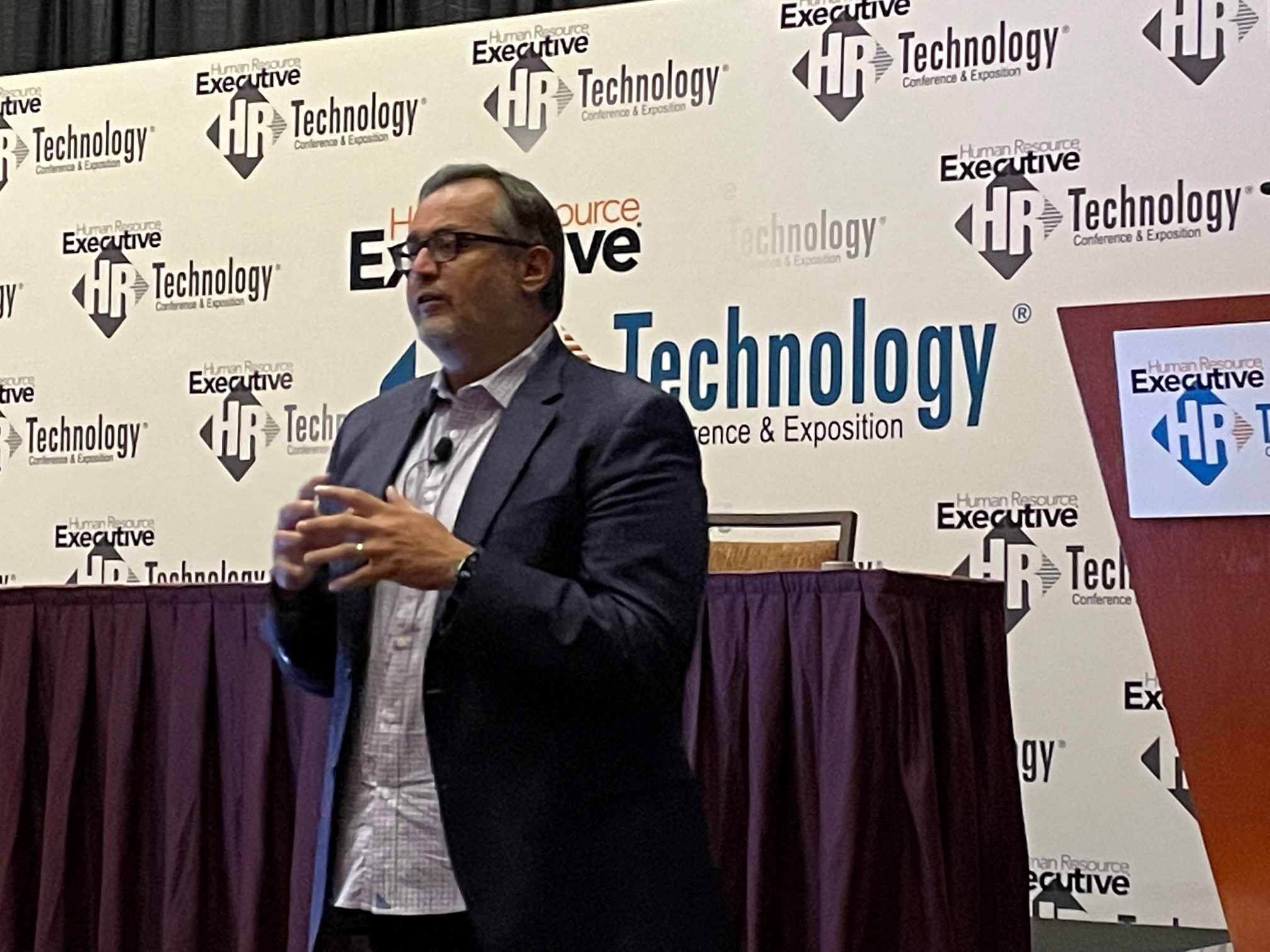According to a 2021 PwC survey of business leaders, the vast majority (74%) of business leaders are worrying about the digital skills of their employees. That’s up from less than a third of the same leaders who were concerned about those skills just four years earlier.

Suneet Dua, chief product officer for PwC, began his mega-session presentation Thursday by putting his topic, “Motivating Everyone to Learn, Work and Participate in the Digital Future,” into context with those numbers. So, why should HR leaders have any concerns if they know that CEOs are already aware of the skills problem? That’s because although 77% of employees report that they’re ready to learn new skills or completely retrain, just 20% of those CEOs have done anything to address their worries about digital skills in the workforce, Dua said.
See also: Here’s where Josh Bersin expects the most innovation in HR tech
That brings up the question of why, Dua said: Why has only one in five CEOs addressed this issue “at scale?”
“They might have addressed the issue with IT, they might have addressed the issue with a shared service center or their business center. But why not at scale? Why not across the full organization? Is it because it’s too hard? There aren’t enough tools out there?
“And the answer is yes and yes. It is hard. And there aren’t enough tools out there.”
What it means for HR leaders
Employees are waiting for the reskilling and upskilling that they need and even for the “up-knowledging” that needs to precede upskilling, Dua said. But organizations aren’t providing it yet and that will continue to contribute to a “digital divide” that will affect the income divide, making it a societal issue.
PwC’s recent journey from a 170-year-old organization with 170-year-old processes and 170-year-old thinking wasn’t easy or cheap. The firm spent four years and $3 billion–$12,000-$15,000 per employee–to achieve its digital transformation, Dua said.
Related: Sign up here to receive HRE’s newsletters.
But the professional services company is now a product company because of its transformation. Its attrition rates have gone down while employee happiness rates have gone up.
“And honestly, hitting our people metrics was a really big deal,” Dua said. “We didn’t care if our people left us and went to another firm because they’ll remember that PwC truly reskilled them and retooled them for the digital world, truly graduated them to be a digital citizen. And that’s really exciting.”

